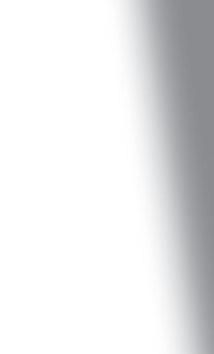
3 minute read
Fireservices urge carethis summer
FIRE authorities have urged the public to help prevent campfirecatastrophes as people continue to enjoy the summer
The Conservation Regulator,Parks Victoria, Forest FireManagement Victoria, and the County FireAuthority arebanding together to warnVictorians about the risks of unsafe campfires in the bush and barbecues on the home front.
Vigilancearoundcampfires and barbecues is crucial to decrease the risk of fires, whether at home or on public land.
With plentyofgrass growth on public and private land in recent months, unattended campfires and barbecues could quickly escape and spark bushfires.
Conservation Regulator and Parks Victoria authorisedofficers, and Forest Fire Management Victoria crews patrol campsites on public landtoeducatecampers and enforce campfirerules to keep visitors and the environment safe.
Forest FireManagement Victoria crews have already responded to 96 unattended campfires on public land this summer, many of which escaped and caused larger fires.
Fireservicesare also warning those cranking up the barbecue at home to take caretoavoid causing fires or burninjuries.
CFAvolunteer firefighters responded to almost200 barbecueand otheroutside cooking equipment-related fires across the state last financial year
TheChief Conservation Regulator, Kate Gavens,saidafter awet spring, summer was well and truly here.
“Therisk of an unattended campfire becomingabushfire is still high.Those who ignorethe rules willface penalties,” she said.”
Forest FireManagement Victoria Chief fire officer Chris Hardman, said just one spark from an unattended campfirewas enough to have devastating consequences. “Never light afireonaTotal FireBan day, never leave acampfireunattended, and always have enough water to fully extinguish a campfirebeforeyou leave. It should be cool to touch,” he said.
Parks Victoria director fire, emergencyand enforcement, David Nugent, said people werekeen to get back into nature following the wet summer.“Firerisk may not seem as obviousthisyear, butashot weather and windydays can changethingsvery quickly. Always check weather conditions and park closures beforeyou head into the bush,” he said.
CFAchief officer,Jason Heffernan, said conditions had been heating up in recent weekswhichhad dried vegetationout considerably. “I urge all Victorians ahead of this weekend to check the FireDanger Ratings and to heed our warnings before heading out and about,” he said.

Campfiresafety:
In state forests, use apurpose-built fireplace if available, otherwise dig a trench at least 30cm deep.
In national parks, fires can only be lit in purpose-built fireplaces. The campfiremust not exceed one square metre, and three metres above and around your firemust be clear of flammable material.
Branches and logs on your campfire must be no longer than one metre.
Never leave acampfireunattendedalways stay within line of sight.
Campfires must be extinguished with water,not soil, as fires can still smoulder under soil.
If the remains of campfire, including coals, arecool to touch, they aresafe to leave.
All rubbish must be taken home with you, not burned.
Barbecue safety:
If afire occurs, turnoff the gas at the cylinder or meter,but only if safe to do so. In most cases this should allow the firetoextinguish itself. If you’re unable to extinguish the firesafely, call Triple Zero(000).
Check the LP gas cylinder on your barbecue beforeyou turniton. A cylinder must not be refilled if it hasn’t been tested for morethan 10 years or if the cylinder has been damaged.
Check the hose to make sureithas not deteriorated.
Check the connections to make sure they aretight and that the Orings are in good condition and have not cracked or split.
Check for gas leaks by spraying soapy water on the connections and hoses. Bubbles will appear if thereisa leak when you turnonthe gas.
Use your barbecue in aclear space. Never use it indoors or in aconfined area and ensurethereisadequate clearance from walls, fences, and other property.
Cook with barbecue utensils and wear an apron to protect yourself from hot fat.
Remove excess fat from the barbecue after each use to prevent fires.
Do not use barbecues in windy conditions as the burners may blow out, risking agas leak.
Charcoal burner barbecue safety:
Use your charcoal burner in a clear space. Never use it indoors or in aconfined area and ensurethereis adequate clearance from walls, fences, and other property.
Never dispose of or -handle old coals until they arecompletely cold.
To eliminate the possibility of accidental flareups, always cool down old charcoal and ash but slowly pouring water over the charcoal and stirring to completely eliminate the possibility of dormant embers reigniting.
Be careful adding water too fast to hot coals as this can create hot steam which can burn. Make sureyou pour slowly to avoid creating hot steam.
Once charcoal and ash is completely cold, it can be disposed of safely.
Visitorstopublic land areresponsible for checking firedanger ratings and weather conditions beforelightinga campfireor barbecue, and for ensuring fires comply with safety rules.
Wrongdoers on public land face on-thespot fines of $555 or amaximum penalty of $18,174ifthe matter is prosecutedin court.
The maximumpenalty for lightingor maintaining afireduring aTotal FireBan is $43,617 and/or two years in jail.


Reportunattended campfires to 136 186 or call 000 to report abushfire.
For moreinformation about rules in state forests,includingcampfiresand vehicle use,visit vic.gov.au/rules-in-state-forests.
Forinformation on barbecue safety, visit cfa.vic.gov.au/plan-prepare/ fires-in-the-home/barbeque-fire-safety









